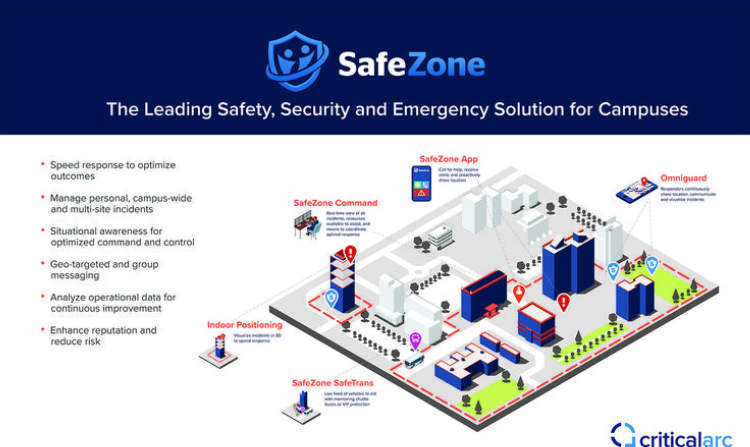The issue of campus security has become an increasingly pressing dilemma for many schools and universities in Germany. Institutions of higher learning have to grapple with a range of security concerns, including the safety of students, faculty, and staff. With the latest terror attacks in Germany, it is especially important that schools and universities take steps to ensure their campuses are secure.
To ensure campus safety and security in Germany, there are several measures that institutions of higher learning can take. Proper screening of students and staff entering the campus is essential, as is the use of CCTV systems to monitor any suspicious activities. Additionally, policies such as visitor registration and an emergency notification system should be implemented to quickly alert authorities in the event of a security breach. Finally, students and faculty should be provided with trainings on how to respond to potential security incidents.
Understanding Campus Safety and Security Requirements in Germany
As a student looking to study in Germany, it is important to understand the safety and security requirements for colleges and universities before enrolling. Ensuring the campus is safe and secure is essential for any student to have a successful academic experience.
Germany is known for having some of the most strict safety and security standards for its higher education institutions. Here are some of the key points to consider when evaluating the security protocols of a German campus:
- Campus security officers are certified and trained by the German Federal Office for Protection of the Constitution.
- Surveillance cameras are installed in all common areas of German campuses and may be monitored by security personnel.
- Student ID cards are mandatory in order to gain access to the campus.
- Strict attendance policies are in place in most German institutions.
- Emergency response services such as police, fire, and medical are in close proximity to all campuses.
It is also important to be aware of the crime rate of the city or town in which the campus is located. Knowing the local crime rate will help to assess the chance of coming into contact with criminal behavior. In addition, understanding the cultural and social norms of the area can also help to reduce the risk of harm or victimization while on-campus.
By taking the time to carefully evaluate safety and security protocols when considering a college or university in Germany, students can rest assured that they are making the right choice when it comes to their academic journey.
Main Strategies for Ensuring Campus Security and Safety

Ensuring campus safety is of the utmost importance in order to ensure a safe and secure learning environment for students, faculty, and staff. In Germany, there are several strategies that can be employed to help ensure campus safety and security; here are the main ones:
- Installing Surveillance Cameras: Installing cameras in strategically important locations helps to prevent criminal activity by deterring potential perpetrators, as well as providing footage that can be used in the case of an incident.
- Using Access Controls and Perimeter Barriers: Access control systems and physical barriers are a great way to control access to university buildings, and students, faculty, and staff can be issued with specialized cards or ID badges to gain entry.
- Utilizing Security Officers and Guards: Security officers and guards can be employed to patrol the campus and provide a physical presence to deter and detect criminal activity.
- Adopting Emergency Protocols: It is important for universities to have a detailed emergency response plan with protocols for different kinds of emergencies.
- Developing Student Awareness and Involvement: It is also important to develop student involvement in ensuring campus safety by providing students with training and providing them with access to resources such as the student security service.
By implementing these strategies, universities and colleges in Germany can ensure a safe and secure learning environment for all members of the university community.
Key Findings and Recommendations
In recent years, there has been an increased need for improved campus security and safety to protect students, faculty, and staff from potential dangers both on- and off-campus. In Germany, this need is especially relevant given the number of international students studying abroad. Therefore, there is a need for a comprehensive and systematic approach to ensure the safety and security of all campus residents.
This article examines the current state of campus safety and security in Germany, including the challenges and best practices. To this end, we have conducted a study to assess the safety measures and procedures employed by campus administrators, law enforcement, and academic institutions. Our findings provide useful insights into the challenges and potential areas for improvement.
Key Findings
- The level of campus safety and security varies across Germany, with certain universities and colleges having more advanced measures in place than others.
- Campus administrators and law enforcement agencies lack the necessary resources and personnel to adequately monitor and protect campus residents.
- There is often a lack of communication between universities, colleges, law enforcement, and the local community.
- Many students lack awareness of available safety protocols and activities, such as regular fire drills and campus safety workshops.
- Many students also fail to take basic precautions to protect themselves, such as avoiding walking alone at night or locking their doors.
Recommendations
- Universities should provide more resources and personnel to ensure the safety and security of campus residents.
- Law enforcement agencies should prioritize increased community engagement and communication with universities and colleges.
- Universities should promote awareness of available safety protocols and regularly remind students to take basic precautions to protect themselves.
- Universities and colleges should invest more in security and safety measures, with an emphasis on preventative measures.
- Universities should ensure that their campuses are better equipped to handle potential emergencies and crises.
Conclusion
Germany is making positive investments to ensure safety on its college campuses. These include security measures such as CCTV surveillance, campus patrols, more stringent screening, and improved security resources. Additionally, the government is working to engage campus faculty and students on safety-related programs such as conflict resolution, mental health care, and training on proper behavior.
These investments demonstrate Germany’s commitment to ensuring safety and security on its college campuses. By continuing to prioritize preventative strategies, campuses nationwide can continue to ensure an environment where students can learn without worry.




